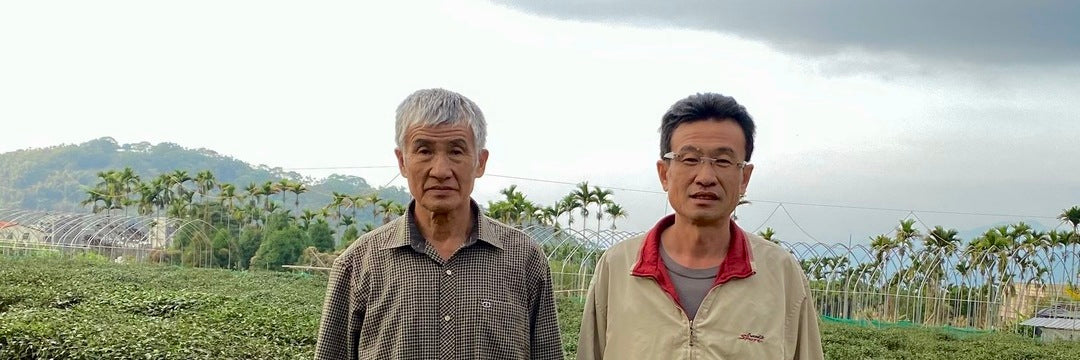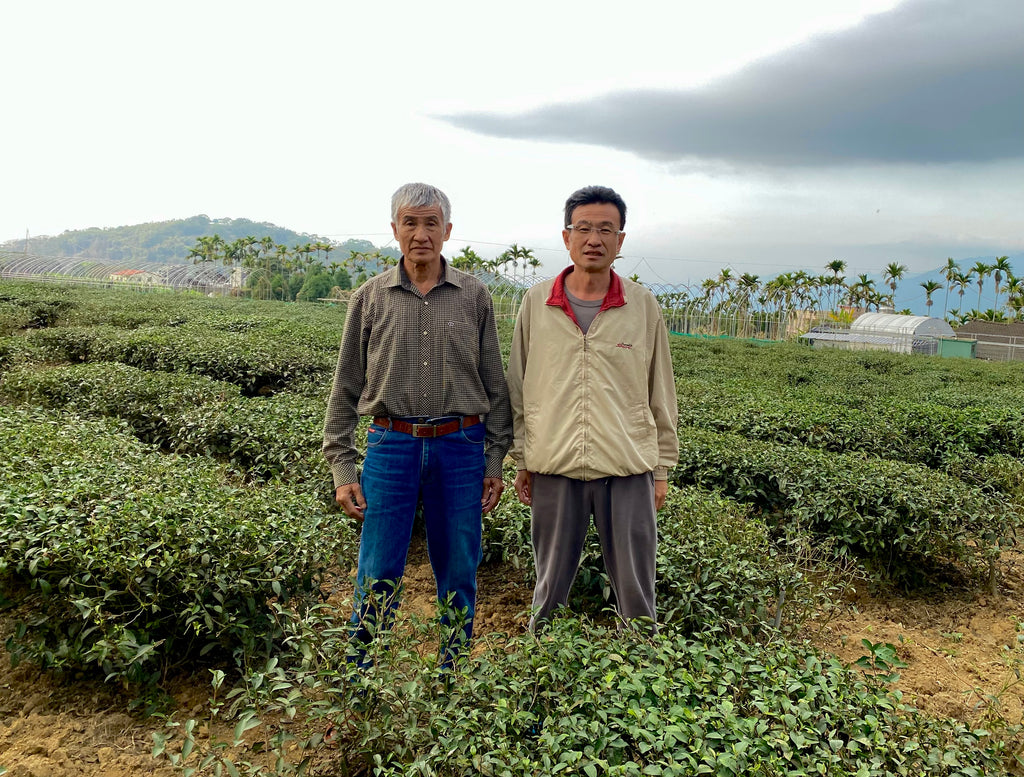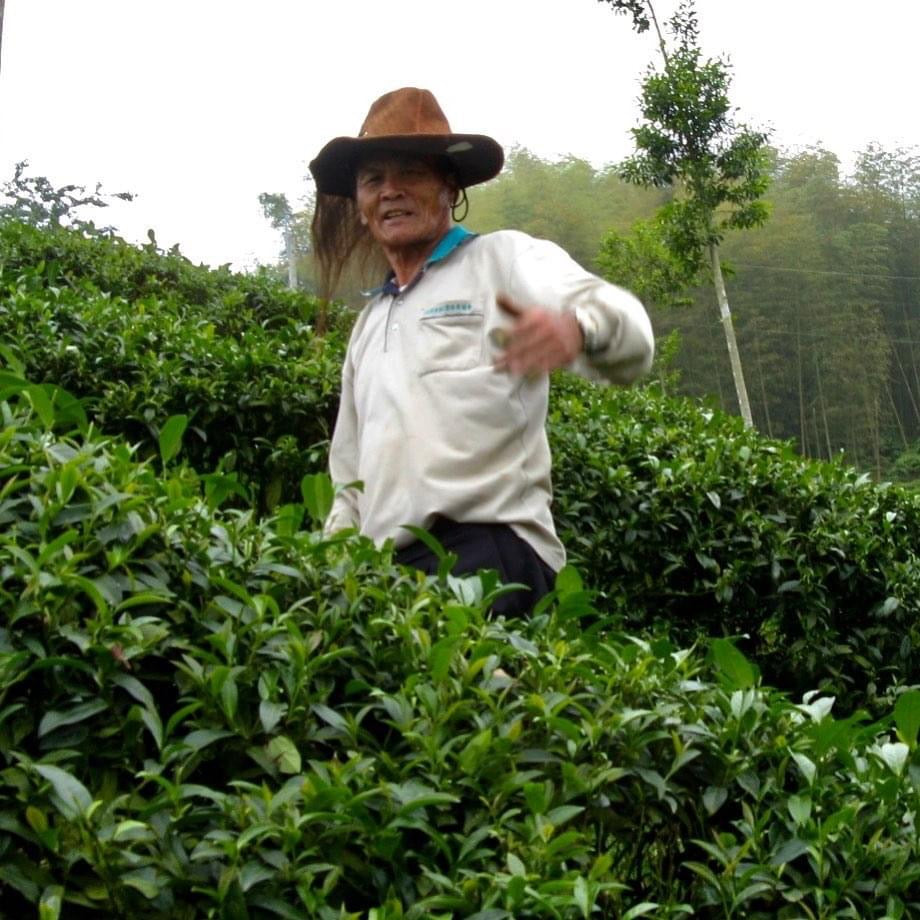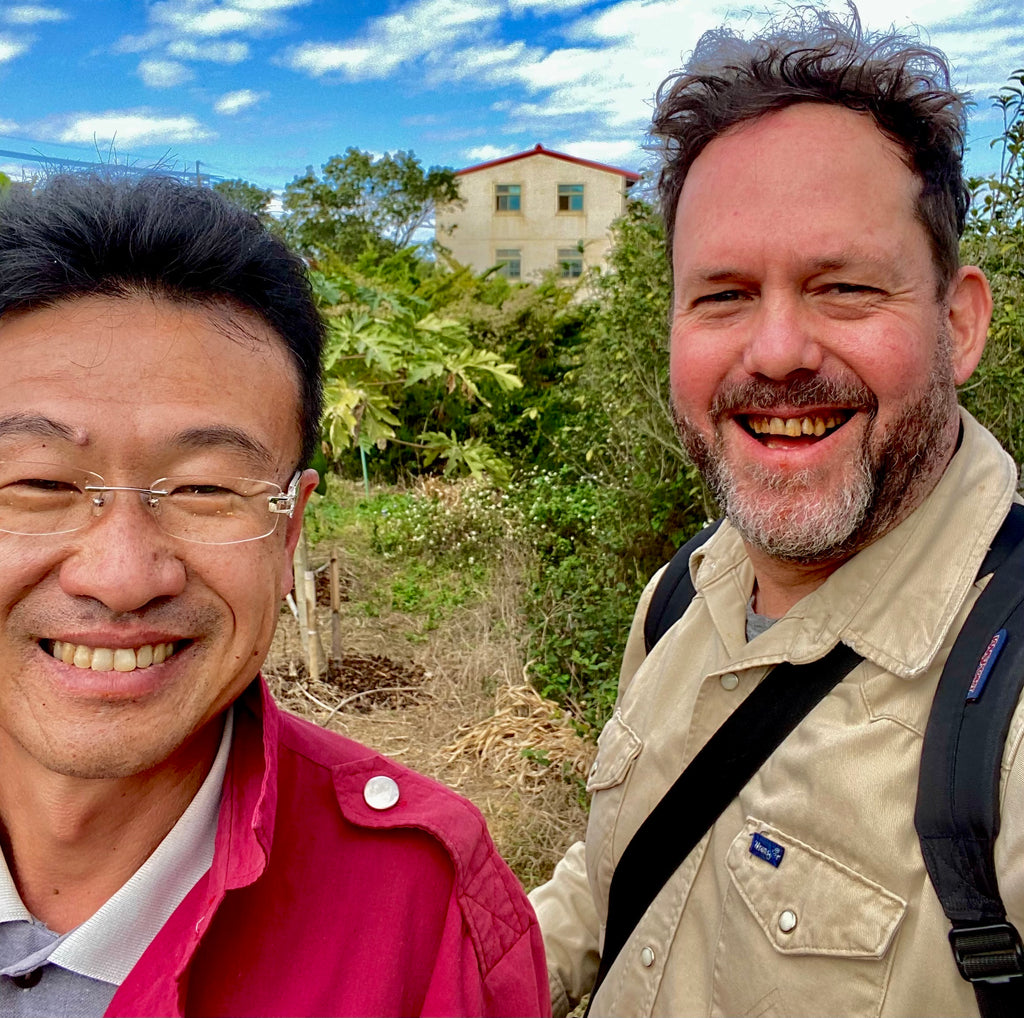
Traditional Lugu Oolong Tea | Eco-Cha Tea Club

Batch 99 of the Eco-Cha Tea Club is a Traditional Lugu Oolong Tea from Yonglong Village in the Lugu Township, Taiwan. The Fenghuang/Yonglong community is along a ridge that runs adjacent to Dong Ding Mountain. This community is home to the densest population of artisan Oolong Tea makers on the island, and is considered to be the heart of traditional Oolong Tea culture in Taiwan. Shown above are father and son from a family of tea farmers. This month's batch of tea was harvested from this plot along with another small plot that were initially planted on their family land decades ago.

We initially met the father's older brother about 15 years ago, and have shared his tea as Batch 2 of the tea club! The above photo was taken on our first visit to his Shan Lin Xi High Mountain Tea farm. We stayed up all night helping his son process the day's harvest, and bonded with the family as a result (maybe it was that roast chicken and sourdough bread we brought with us to snack on through the night...?)
Back to the present, this next generation tea farmer is one of the most dedicated to his local tradition of all tea makers we've known. He decided as a young adult that he didn't want to rent high elevation real estate and manage a tea farm remotely. As this is how most of his neighbors make a living. He preferred to get a day job to make enough to raise a family while tending to his family land — producing tea locally. This is what initially made an impression on us when we met him several years ago. In recent years, he's worked at the Tea and Beverage Research Station's Dong Ding Work Branch, where he does various forms of educational outreach about tea production.

We've shared his teas as Batch 46 and Batch 77 as well as Batch 87 of the tea club. This clearly is testimony to the fact that we perceive him as a progressive representation of his local traditional tea culture. The previous three batches we've shared from this source have all been his unique produce from an heirloom cultivar of the Tie Guan Yin strain. This month's batch is not that strain, but rather the classic Qing Xin Oolong strain that is used for virtually all Dong Ding Oolong and High Mountain Oolong Tea production.
What makes this batch "traditional" is the extent to which the leaves have been oxidized as a result of solar withering and tumbling in combination with indoor withering. It was a warm sunny day in early November when the leaves were picked, which made for optimal solar withering conditions. But it was cool and dry in the evening, which was conducive to depleting the leaves of moisture that is prerequisite for the oxidation process to occur. Finally, our friend put them in the bamboo tumbler for about twice as long as what we generally have seen in the processing of Oolong Tea — even when making a more traditional/well-oxidized style of tea. So these weather conditions and the amount of shuffling and tumbling that the leaves underwent are the most notable contributing factors to the character of this batch of tea. It was only after tasting the final product that the artisan had a sense that the leaves were slightly affected by the Green Leafhopper. The brewed tea had a hint of bug bitten flavor that is responsible for the making of Concubine Oolong as well as Oriental Beauty. A tea merchant from Taipei in northern Taiwan tasted a sample and immediately determined it to be bug bitten, and promptly arranged to come down to Lugu and roast the leaves that he purchased. Sure enough, it was true! The roasting brought out a distinct honey note in the flavor profile that was evidence that the leaves had been subtly affected by the Leafhopper.
We decided that we appreciated this brew as it is — left unroasted. The roasted version had a distinct honey note in the flavor profile, but it seemed to lose its substance and complexity as a result. This is likely due to the fact that this was a relatively late winter harvest, and the leaves were mature and somewhat fibrous already — which is not conducive to roasting. In fact, traditionally made Oolong Tea from the Lugu area was not roasted. This is a modern development. So that is the final contributing factor to what makes this batch a traditional Lugu Oolong Tea: Well oxidized mature tea leaves that are left unroasted. ENJOY!

